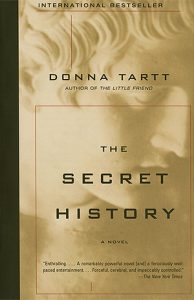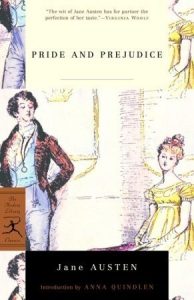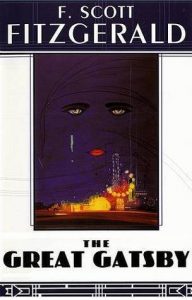I turn to the last page, my heart thumping in my chest as I read the final line. It’s all come down to this and as I swallow the last three words, my mind is abuzz with a dozen thoughts I couldn’t decipher. As I closed the back cover I had expected to feel a rush of euphoria but instead all I felt was an unpleasant taste in my mouth and that awful thought that all readers seem to dread thinking.
That was it?
Perhaps, as you are reading this, you are laughing or feeling a shiver down your spine as your mind recalls that last book that you asked that question about. It’s not a pleasant feeling, especially if you are an avid reader like myself. Soon, you find yourself spiraling into a hole of questions. Had I missed something? Should I go back and re-read the whole thing? What was the appeal of this book anyways? Am I too dumb to realize it? Why oh why did I even pick this book up in the first place?
Yet, in addition these questions, I was also pricked by another unpleasant thought and one I have asked before. Why was this book so hyped up anyways?
Hyped books in general can be a slippery slope and one I have gone down a few times, though sometimes with pleasant results. For example, the beloved Finlay Donovan Is Killing It is turning out to be one of my favorite books of the year. But, I can also recall a few others that I didn’t reciprocate the adoration for.
As a writer and beginning blogger I spend a lot of time on social media and follow many fellow book-related creators, who are always recommending their favorite books and this book I finished despairing over was perhaps one of the most hyped books in the book universe and hence why I dread writing it.

The Secret History by Donna Tartt.
No! You can’t be serious? Are you sure? I can practically hear someone shouting these questions into their computer and I find
myself shuddering at the idea. Alas, it is true and believe me, it hurts me as much as it hurts you.
But I can also imagine someone reading this and asking, what the hell is The Secret History?
This 1992 book is often considered a modern classic and is essentially the grandfather of the now highly popular dark academia genre, which exploded during the COVID-19 pandemic and a genre which I do like reading, despite the often dark topics. The story follows our narrator, Richard, who gets accepted into a highly selective college in Vermont. A fan of the Greek language, history, and culture, Richard manages to nag a coveted position as one of only six students allowed to study the Classics under a charismatic teacher named Julian. The other five students are highly eclectic and a bit unusual, to say the least. The leader of the group is Henry, the poster boy for many a BookTok obsessed individual. He’s highly intelligent, overly polite but also a bit standoffish and odd. His closest friend is Edmund, nicknamed Bunny, who is fun loving and outspoken, but also someone who needs to learn a thing or two about financial budgeting and keeping his mouth shut. There are the twins, Charles and Camilla, who are inseparable and overly welcoming to Richard. Finally, there’s Francis, who is a bit of a nervous Nelly but also the closest thing Richard will have to a best friend. But while everything might seem rosy, that is far from the truth and when one of the friends threatens to expose a dark secret the others decide to make a fateful decision; commit murder.
Intriguing right? That’s what I thought and not even the nearly six hundred pages was enough to deter me from picking it up. The novel is set up into two “books” and the first one is excellent, building tension and the plot. When the murder occurs 250+ pages in, I’m not even bothered that it took quite a while to get to it and I excitedly began reading the second half of the book. It had over three hundred pages left so I anticipated a lot of stuff to happen.
I should have stopped there.
I’m not going to reveal any spoilers but I was highly disappointed. For a book that started off so promisingly, I was left in a pool of frustration when it came to a close and it forced me to answer an important question, can books be overhyped and, if they are, why are we so afraid of saying so?
Though our society has become more tolerant and more open to differing opinions, when it comes to certain books, some opinions are not always wanted. Let’s look at classic books, particularly two you have undoubtedly heard of and perhaps even read; Pride and Prejudice and The Great Gatsby.

The Jane Austen classic is highly acclaimed by readers and critics alike, to the point that it has become the blueprint for romance books that followed. I read this book when I was an undergraduate in college and enjoyed it. Didn’t love it but didn’t have many complaints. My fellow classmates also liked it, and that seems to be the general consensus though there are those who are borderline obsessed with it (no judgement, there are worse things to be obsessed with). Looking over the numbers on Goodreads, only 2% of the over four million people who reviewed and rated the book gave it one star. But that’s not what’s interesting. What is telling is how people reacted to these negative reviews. One reviewer had posted their review shortly after they read it when they were seventeen and had since added a disclaimer. The disclaimer stated that while the reviewer hadn’t re-read Pride and Prejudice since they originally read it in high school, they did acknowledge that perhaps they wouldn’t feel the same way now ten years on but pleaded with those reading the review to please stop making comments about their intelligence level. After reading a couple of those comments I soon realized why the reviewer had added that disclaimer. Some individuals were brutal in their review of this person’s opinion and I felt sympathetic for the original reviewer while also applauding them for not being afraid to share their opinion. Still, some of the comments must have stung.
But, there is also something to say about safety in numbers. Going to the opposite side of the spectrum, what about liking a classic book that no one else enjoys, or any book for that matter? That’s where I found myself in my high school literature class a decade ago when my class read The Great Gatsby. Often mandatory reading in the American school system, Gatsby was originally panned by critics when it was released but grew in popularity during World War Two and has since been hailed a classic for showing how unobtainable the American Dream is. When we finished the book, I felt overjoyed at the prospect of discussing the book in class. I loved it, and still love it.
Unfortunately for eager sixteen-year-old me, no one else in my class agreed. The discussion quickly erupted into a bashing of the book, with each of my classmates taking turns in saying what they hated about it. By the time class came to an end I felt as if I had committed a crime by loving the book and I kept my opinion to myself. I thought I had grown past that, recognizing that everyone is entitled to an opinion and I was certainly allowed to speak mine, but flashforward to today after finishing The Secret History and I find myself going back and forth about whether to say anything about the book or to move on to the next.
The danger of a book being overhyped is that it can often lead other individuals to make the wrong assumptions about it and The Secret History seems to be a victim of this. Because of the genre it sparked, I was under the impression that The Secret History was a murder/thriller and that the second half of the book would focus on the investigation, the near hits and misses of the students being caught, and some dramatic twist at the end that would have me spiraling. None of that actually happened. In fact, the book is quite far from a murder mystery and I would classify it more as literary fiction as Ms. Tartt examines several big theories in the book such as how dangerous it can be for a person to live by their aesthetic as opposed to their moral compass, which is strangely ironic given the book sparked an entire aesthetic. Nonetheless, it left me wondering if I would have enjoyed the book if I had known that ahead. Probably not, as my main issues with the story are plot driven. For example, the police investigation into the murdered student’s death is highly underdeveloped. Considering the murdered student had a small circle of friends, I found it strange that the investigators did not interview all five of the remaining characters and it was something I felt would have been jumped on by readers in any other book. Which begs another question relating to why we are afraid to speak out against hyped books; are these books’ flaws forgiven and/or ignored?
The answer to this question is probably not easy to answer as perceived flaws in a story might not be perceived that way by others. Soon we find ourselves in a heavy debate about author intentions, plot devices, and character development, bringing us all back to the original question of can books be so overhyped that we ignore any potential flaws the story can have? I think we can and that is not necessarily wrong. One of my personal favorite books is The Edge of Daylight by Giselle Beaumont, a heavily fictionalized account of Titanic‘s officers on the ill-fated ship’s maiden voyage, including the addition of a female officer. The book is the farthest thing from historical accuracy, there are flaws, and yet every time I pick it up I’m fully invested and love it just as much as I had read it the first time. But, if you were to ask me if I would recommend it, I would but with a cautionary warning for the after mentioned reasons.

And I think therein lies the reason why we overhype books. The current political/social situations many people are facing, regardless of where they live in the world, can often make the future look daunting, scary, or hopeless so we look for an escape. Books have been providing people outlets to forget the outside world and have some peace, even if temporary and can we really fault people for that? I can’t, and I do see why so many people loved The Secret History.
Ultimately, there is nothing wrong with loving any book but when it comes to overhyping a book, it can be a bit dangerous. Yes, you want to share a story you absolutely adored (and as an author we love it when our readers hype us up!) but we shouldn’t want to overhype a book to the point that the true intention and message is lost in translation because, as we can all see, that sometimes lead to bitter disappointment and frustration.
I should say now that I do think The Secret History had some good aspects to it. For one, Ms. Tartt is an extraordinarily talented writer that could probably make instructions on how to put together a bookcase sound interesting. The characters are also very well developed and the tension being built throughout the book is exceptionally well done. But, at the end of the day, those positive attributes weren’t enough to counteract my dislike for the parts I felt were lacking.
So what do we do about speaking our minds about disliking a beloved book? Well, from what I learned in my own personal experience that is not always an easy battle. There is always one person in the world who loves a book that you don’t like and that’s okay, but we should also respect one another’s opinions and thoughts. If we do this then, in time, we might be able to eliminate the stigma of sharing controversial opinions about books. Also important to keep in mind is that the person who wrote the book you aren’t liking also has emotions and that, while it’s okay to say you don’t like the story, we shouldn’t go overboard. The book you were reading simply wasn’t for you but perhaps the next one will be.



Add Your Thoughts